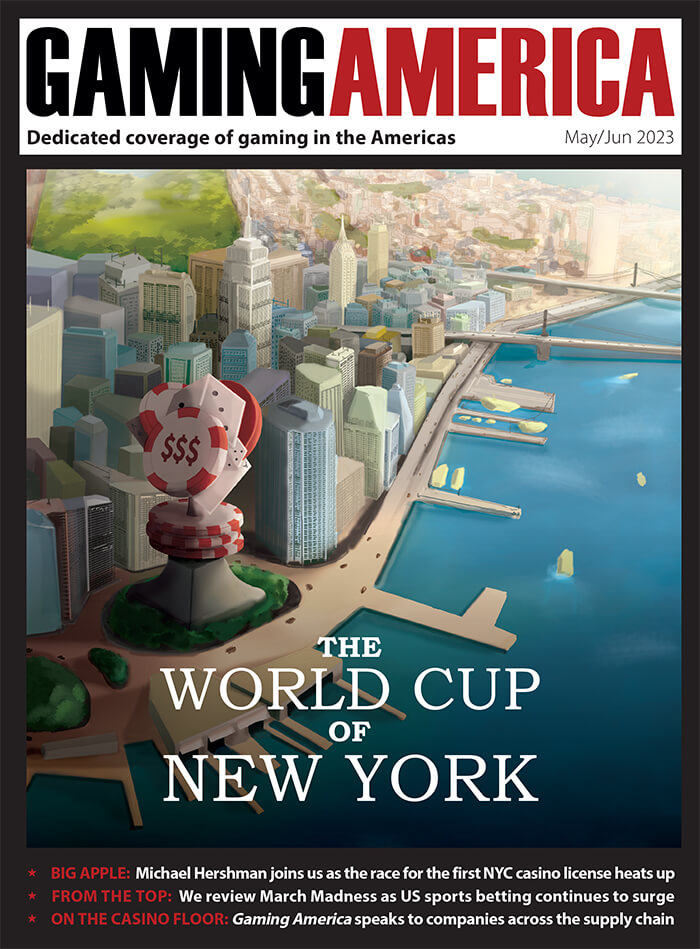
After graduating from college, Ambus Hunter won a large jackpot playing roulette at the age of 25 during a short vacation in Las Vegas. The thrill of winning kept him going back for more, which eventually led to him to losing all his savings by playing roulette at various US casinos near his home. Finally, he decided he was tired of losing more than he could afford and began his journey toward living addiction-free and rebuilding his savings. Aside from one relapse early into his recovery, he no longer visits the casino and works as a personal financial counselor to help others build wealth, establish good spending habits and to learn how to live on a budget.Though his casino days are long behind him, Hunter pointed out that he is in favor of responsible gaming and the importance of people knowing their limitations. “Yes, there is responsible gaming and I am not against gambling. I want to make that clear,” he told Gaming America. “I am pro people knowing themselves, understanding what they’re getting themselves into and having healthy boundaries.”Below, Hunter shares his thoughts on the lessons he learned throughout his professional career, walking the path toward problem gambling recovery; and ways in which the industry can further support and encourage responsible gaming.
Your website mentioned you had a couple of mentors who heavily influenced you on your journey to financial recovery. What was the greatest lesson you learned from each of them?
Specifically, those mentors were career mentors. They helped me understand the value of intentionality, spending the time getting to know yourself, getting to know your strengths, your growth opportunities and how to create a vision for your life that you ultimately want for yourself.
During the time you were recovering from gambling addiction, who were the people that most inspired you to keep moving forward and resist the temptation to gamble again?
The interesting thing is I was on my own in that regard because I was afraid of people finding out. I was afraid of my friends finding out. I was afraid of my family finding out. It is one of those things where you never want your parents to know. I wasn’t at a place where I felt comfortable talking about it. I was just trying to avoid that in all possible ways. In a backwards sort of way, they inspired me to keep going because I just wanted to recover my finances as quickly as possible; so I could get past that point of my life and not set off any alarms or any red flags that something was going on. So, in an interesting way, my close friends and my family members did inspire me.
If you could offer one piece of advice to those who are working to overcome problem gambling, what would you say to them?
I’d say the biggest piece of advice is something that I didn’t do – and that is to leverage addiction treatment services as much as you can. You don’t have to go through this alone. There are services out there and there are resources out there. There are gambling treatment therapists and other professionals that are trained in helping you get past this problem.
What words of wisdom do you have for anyone who has “fallen off the wagon” in their journey toward overcoming gambling addiction?
I’d say the lapses are part of the journey. Don’t beat yourself up over it. Look for the lessons within those moments. There’s a lot that can be learned from them. It’s all going to be up to you and your choices – how you choose to interpret those moments and, ultimately, what you could learn from them to help your recovery journey. For example, when I had my lapse, I was on a work trip in Louisiana, where I was specifically in the Shreveport area; there are lots of casinos. I was there for three or four weeks. What I learned from that lapse was that proximity is still the trigger for me, being that close to the casino is a trigger for me and too much downtime was also a trigger for me.Something I learned is if those things are a trigger for me, I’m going to have to intentionally work to rework that habit. I’m going to have to become hyper-aware of those triggers and those cues that can lead to my gambling. For me, that means intentionally choosing other habits when I do feel like I have a lot of downtime.
In recent years, the gaming industry has turned its focus toward supporting responsible gaming. What resources would you recommend to those who want to know more about gambling addiction?
I like to point people to lots of great information. My go-to site is the National Council on Problem Gambling. It has lots of resources at a national level, but also some to help you narrow down what’s available in your state, and what is available in the local area to help you.
What are your thoughts on how the gaming industry is handling the potential for gambling addiction in the US now that more states are legalizing sports betting?
It’s harder now because people have cell phones. In this era, you can literally just open an app on your phone to do some very intense gaming. People have to think about and put other things in place to self-exclude, and put those barriers and boundaries up.From the industry standpoint, I would like to see more messaging educating on the reality of gambling addiction.They all have a message of “have a game plan” and “don’t gamble more than you can stand to lose.” I appreciate that those messages are embedded within the marketing and within the promotion. Anyone who has ever been through gambling addiction or if you’re a gambling addiction professional, would like to see more of those messages. Of course, you would like to see more of a balanced reality.
I believe there are way more people out there that are silently struggling. They may not even know these funds and programs exist. Some states are better than others as far as how much they are allocating their gambling tax revenues to problem gambling funds. Some states offer maybe 2% to 3% of revenues going to problem gambling. Gambling funds varu state by state, so overall, I’d like to see more.

